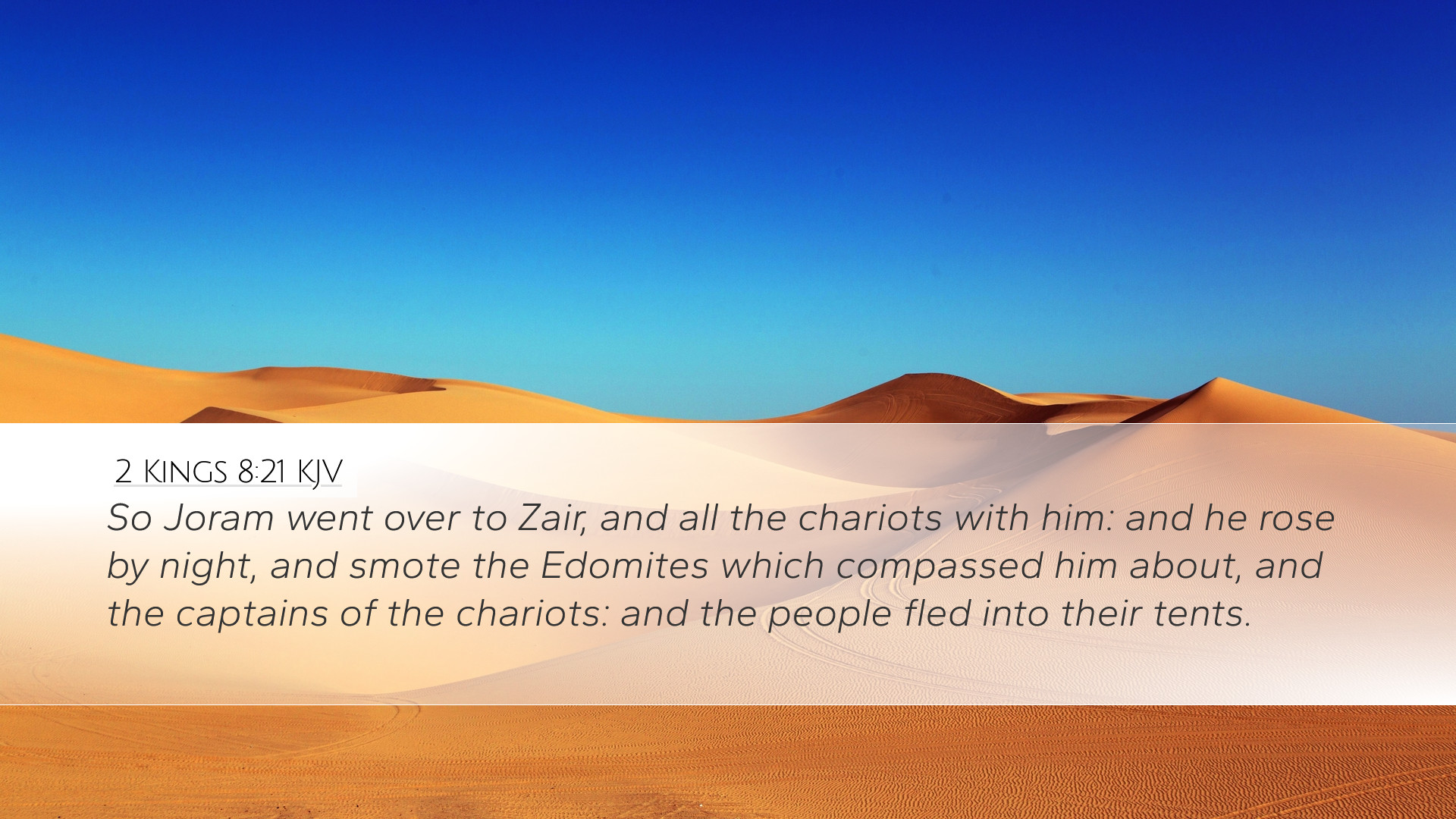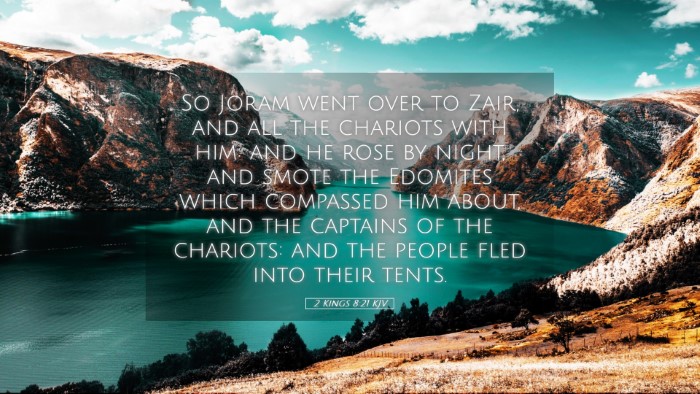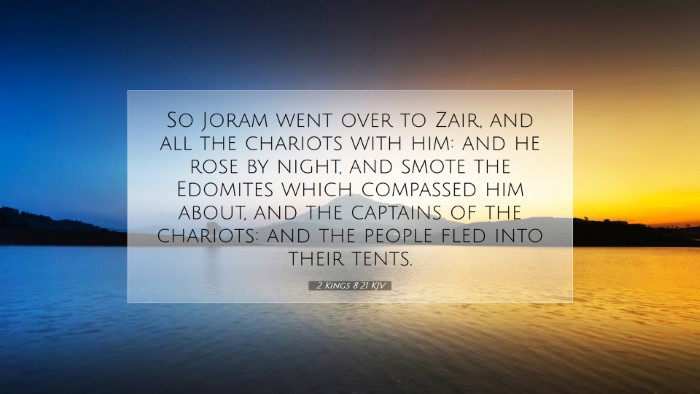Commentary on 2 Kings 8:21
In 2 Kings 8:21, we encounter a significant moment in the narrative of the Southern Kingdom of Judah during the reign of King Jehoram. This verse registers the political turmoil and the dynamics of power among the kings of Israel and Judah. Below is a synthesized commentary derived from public domain works by noted theologians and scholars.
Textual Context
This passage is set in a broader context of conflict and changing alliances. Jehoram, son of Jehoshaphat, succeeded his father as king and faced various challenges, notably from the Arameans (Syrians). The verse reflects the tense political climate and highlights how interpersonal relations among rulers can lead to drastic consequences for nations.
Verse Translation
2 Kings 8:21 (NIV): "So Jehoram went to Zair with all his chariots and horsemen. He arose by night and struck the Edomites who had surrounded him and the chariot commanders, but his troops fled to their homes."
Commentary Insights
Political Turmoil and Leadership
Matthew Henry points out that the history of Judah during King Jehoram's rule is marked by instability and poor alliances. This passage signifies the challenges faced by kings who took their positions without the necessary favor of God. It serves as a reminder of the importance of righteous leadership in sustaining a nation's peace and prosperity.
Military Encounters
Albert Barnes discusses the military implications of this verse. Jehoram's actions at Zair represent a desperate response to external threats. His night assault indicates desperation rather than strategic military planning, leading to further complications for the nation. Such military actions emphasize the need for wisdom and guidance in leadership decisions.
Divine Judgement and Consequences
Adam Clarke elaborates on the themes of divine judgment present in this narrative. Jehoram's inability to secure victory, despite his efforts, signifies God's disfavor due to the king's previous collaborations with idolatry and associations with wickedness. Clarke emphasizes that when leaders turn away from God's commandments, they place themselves in vulnerable positions, both politically and spiritually.
Character Analysis
King Jehoram's Leadership
In this verse, Jehoram's character is further scrutinized. His reign is seen as a decline from the godly legacy of his father, Jehoshaphat. Jehoram's willingness to engage in battle at night reflects a lack of trust in God’s protection, showcasing his inner conflict and the resultant fallout for his kingdom.
The Role of Edom
The Edomites, who revolted against Jehoram’s rule, symbolize the strained relationships between neighboring nations. Their rebellion illustrates a recurring theme of dissent and conflict in biblical history, which further contributes to the instability of Jehoram's reign and ultimately affects the survival of Judah.
Theological Reflections
This passage serves as a rich source for theological reflection on the nature of leadership, divine sovereignty, and the consequences of turning away from God. It encourages pastors, theologians, and students to consider the role of faith in governance and the eternal principles that are a part of biblical narrative. The connection between a leader's faithfulness and national stability is a theme that resonates throughout scripture.
Application for Modern Leaders
For contemporary leaders, both religious and secular, this text presents pertinent lessons about dependence on God, the significance of moral integrity, and the repercussions of turning to ungodly practices for guidance. It challenges today's leaders to seek wisdom and righteousness in their decision-making processes to avoid the pitfalls exemplified by Jehoram's downfall.
Conclusion
In sum, 2 Kings 8:21 encapsulates a critical juncture in Israel’s history, illustrating the complexities of leadership amidst divine judgment. It serves as a poignant reminder of the necessity for leaders to seek divine wisdom in governance, emphasizing that the trajectory of nations often hinges on the character and covenant faithfulness of their rulers.


